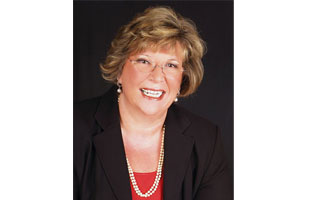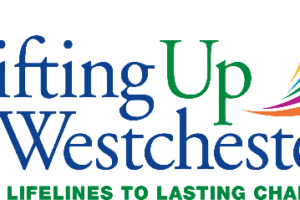 I am one of nearly 1,400 NYS principals who endorsed an open letter to the New York State Education Department to raise awareness about APPR (Annual Professional Performance Review), the controversial new system of teacher and principal evaluation. Over 5,000 citizens including Superintendents, Board Members, Teachers, Parents, and former Commissioner of Education, Dr. Thomas Sobol signed on as well. The entire letter, which has received local and national press coverage, can be found at www.newyorkprincipals.org. This grass roots action is led by Westchester and Long Island Principals as part of a statewide effort to draw attention to recent legislation (Education Law 3012-c) which, beginning September 2011, requires all teachers and principals to receive a number from 0-100 to rate their performance. Part of that number (40%) will be based on student test scores and achievement.
I am one of nearly 1,400 NYS principals who endorsed an open letter to the New York State Education Department to raise awareness about APPR (Annual Professional Performance Review), the controversial new system of teacher and principal evaluation. Over 5,000 citizens including Superintendents, Board Members, Teachers, Parents, and former Commissioner of Education, Dr. Thomas Sobol signed on as well. The entire letter, which has received local and national press coverage, can be found at www.newyorkprincipals.org. This grass roots action is led by Westchester and Long Island Principals as part of a statewide effort to draw attention to recent legislation (Education Law 3012-c) which, beginning September 2011, requires all teachers and principals to receive a number from 0-100 to rate their performance. Part of that number (40%) will be based on student test scores and achievement.
I share the following major concerns with other principals across our County and State: 1) While school-wide achievement results are valid evaluative criteria, high-stakes standardized tests should be piloted and analyzed prior to large-scale implementation. According to a recent study by the National Research Council, the past decade’s emphasis on testing has yielded little learning progress. 2) There is no evidence that evaluation systems that incorporate student test scores produce gains in student achievement. And, yet, precious tax dollars will be funneled to consultants, test makers and attorneys to develop such a system, and 3) Students will be adversely affected if schools focus on teaching to tests instead of teaching to the needs of kids; and this will put teachers in the terrible position of wondering whether the performance of their weakest students on a test might be a threat to their careers. We all believe in the importance of comprehensive evaluation, but this “one size fits all” system with a host of overly prescriptive components designed in large part to combat the well-publicized ills of large under-performing school systems in our state, works against school improvement, not for it.
Like many principals, I welcome accountability but believe an unproven and costly evaluation system is not the path to school improvement. Our primary concern is the academic, social, and emotional growth of our students, and resources should be directed to advancing this goal. While politicians, bureaucrats and unions debate whether this evaluation system is good or bad for adults, I wonder if anyone asked whether it is good or bad for students.
Advocates of systems like the new evaluation system in New York look to the business world for school improvement ideas. From this perspective, test scores are viewed as analogous to the way a business looks at profits. These advocates believe that if teachers are in fear of losing their jobs, they will intensify their efforts to raise students’ scores. The focus is the score (the “profit”), not the child. For these folks, test scores are the bottom line, and these “bottom line” reformers believe that what gets measured gets done.
The educators I know have a different belief. We believe that what is nurtured grows. Our effectiveness should be measured through multiple indicators of learning that must always include, but never be limited to, standardized tests. Our students deserve no less from us.
I am proud to lead a school where we are motivated to achieve because we believe in what we do – a school where student success is a very personal thing, a place where each individual deserves the opportunity to reach beyond the required competencies that schools are held accountable for providing. At Sleepy Hollow HS there is a culture of acceptance and a pervasive “can do” attitude. Everyone who enters the schoolhouse door is welcomed and appreciated for who they are and how they contribute to our mission. Our faculty and staff work collaboratively to personalize the learning environment so that every member of our diverse student body’s needs can be met… none at the expense of the other. We strive to challenge all students, nurturing strengths to build capacity as skillful communicators, creative thinkers and capable problem solvers. The “numbers” i.e. strong test scores, college acceptances and high graduation rates along with outside recognition at the State and National level – tell us we are successful. There are other powerful measures that we use to drive our continuous improvement such as student and staff satisfaction seen through effort and pride in accomplishment; a sense of belonging as manifested through high levels of voluntary participation in a range of programs and activities; and generosity in spirit as demonstrated by service to others, small acts of kindness and tolerance of those with whom we differ.
At SHHS we will comply with this new law without letting it detract us from our mission or derail us from our quest for continuous school improvement. As a faculty we will work together to put APPR in proper perspective and not let testing take on a disproportionate role in driving our curriculum. We will continue to hold ourselves accountable for how well we serve the young people of this community, and hold our elected officials accountable for their role in supporting legislative changes that are truly beneficial to our schools. I invite you to join me in monitoring the impact of APPR and advocating for meaningful and cost effective educational reform.
[blockquote class=blue]Mrs. Conklin-Spillane has been principal at Sleepy Hollow High School since 1994, she serves as leader of the Southern Westchester Principals Association and has presented on issues of high school reform at the State and National level. [/blockquote]






